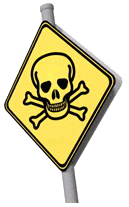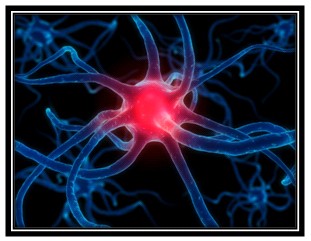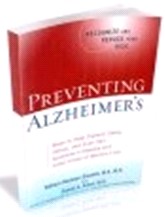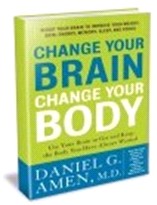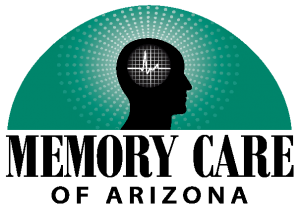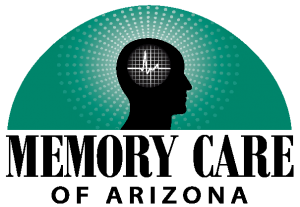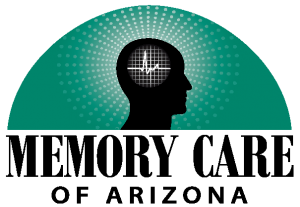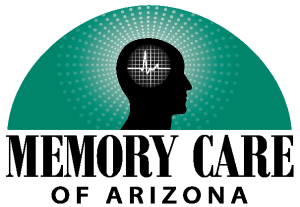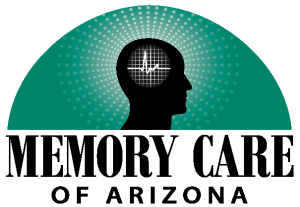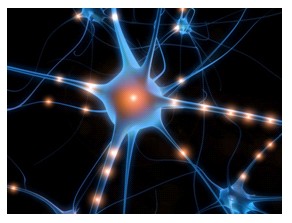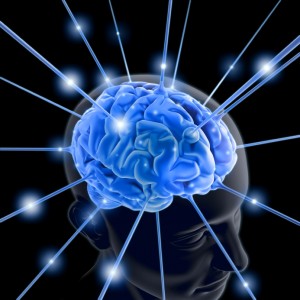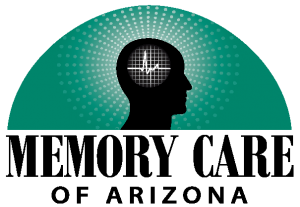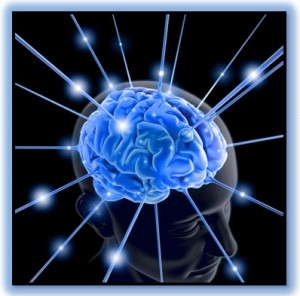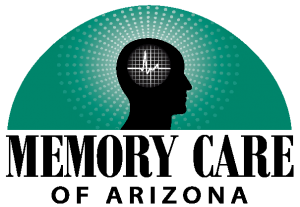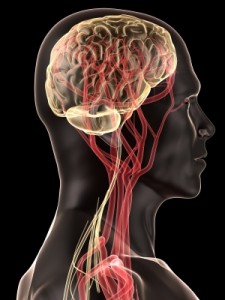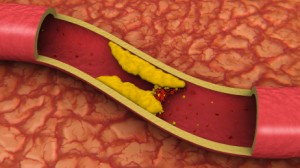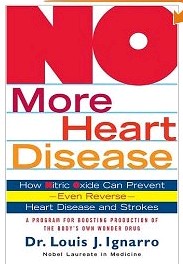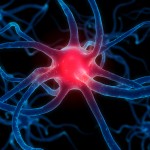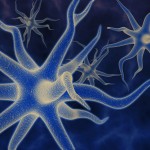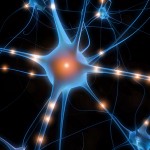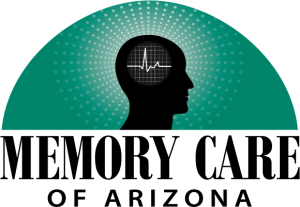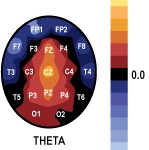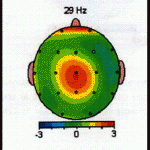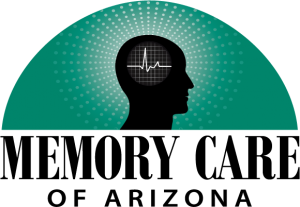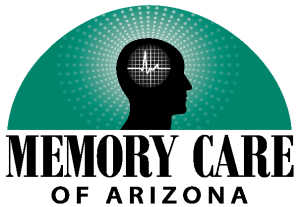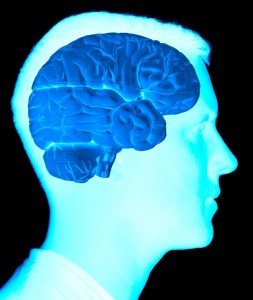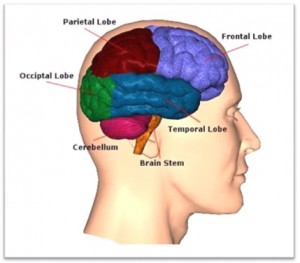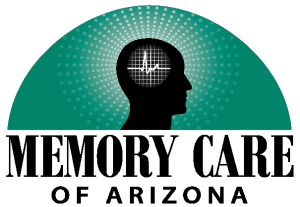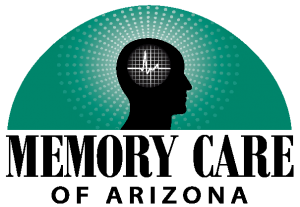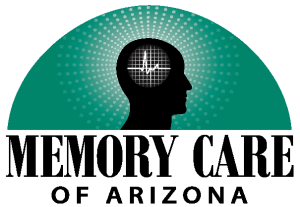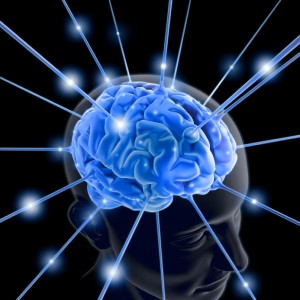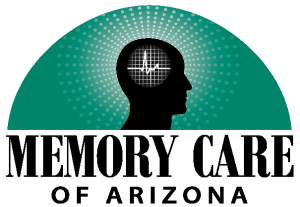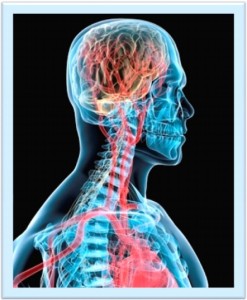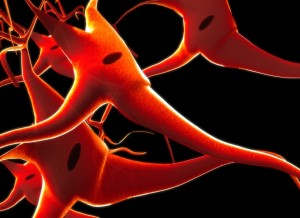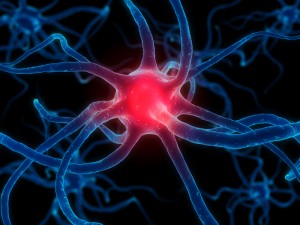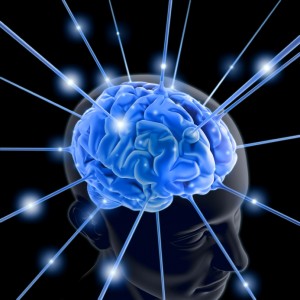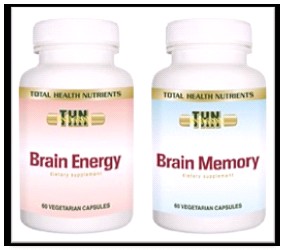First, We Present the Potential Problems that May Cause Memory Loss
Then, We Present Solutions for Improving the Brain’s Memory
The brain has 4 lobes of:
The Frontal Lobe
The Temporal Lobe
The Parietal Lobe
The Occipital Lobe
Each one of the lobes can be involved with dementia and loss of brain function.
Introduction to Improving Your Brain
This section, Tips for Improving Your Memory, is not about some cute little way to remember names or numbers. This section is about making real changes within the brain, which is of making real neurological and biological change to improve your brain. This is a way to realistically improve your brain and therefore your memory. This is going back to basics, the fundamentals of good brain health, of achieving and maintaining real brain power, which is always the foundation of a healthy happy lifestyle.
There are a great many problem areas that cause Reduced Brain Power and a Loss of Memory. We list some of them here, and with solutions for reducing the areas of concern. As a practical matter, we start with simple, yet profound, conditions that may have great effects in reduction of brain power and cognitive effectiveness.
The information for this list of neurological concerns and improvements is taken from the work of Dr. Daniel G. Amen, a clinical neuroscientist, a psychiatrist, and director of four neurological clinics specializing in SPECT scanning of the brain. More information on the works of Dr. Amen can be found at the end of this article in the reference section.
![]()
PROBLEM: Low Amounts of Brain Fuel & Brain Nutrients
The brain needs oxygen, glucose, and nutrients to live. The brain must have its glucose, oxygen and nutrients to just survive, and the way it gets them is from the blood supply going into the brain. Nothing must stop the blood flow to the brain, or the brain malfunctions, causing multiple neurological, physical, and mental problems.
SOLUTION:
Specific Nutrients enhance Specific Brain Functions. The object is to increase energy and action within the brain.
To start with, we begin with the most basic of facts, the most important of information, the knowledge of what the brain needs to be alive and have “brain power”.
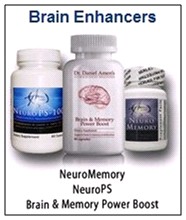 Junk foods, empty calorie foods, are foods that leave the brain without the fuel it requires. Vibrant, healthy foods “feed and nourish” the brain. Just by looking at some people, it is obvious that they have the glow of good health. While again, just by looking at other people, the glow is gone and the look is one of slowness and sluggishness. The same is true of the brain, as some brains vibrate with good mental health, others do not.
Junk foods, empty calorie foods, are foods that leave the brain without the fuel it requires. Vibrant, healthy foods “feed and nourish” the brain. Just by looking at some people, it is obvious that they have the glow of good health. While again, just by looking at other people, the glow is gone and the look is one of slowness and sluggishness. The same is true of the brain, as some brains vibrate with good mental health, others do not.
The brain needs power foods and nutrients to operate with the glow of energy and vitality.
Be safe. Eat healthy and take brain nutrition.
PROBLEM: “The Triple 3”
Nicotine prematurely ages the brain. Nicotine causes blood vessels to constrict, lessening blood flow to the brain, and thus depriving the brain of the nutrients it needs, and eventually causing overall lowered neurological activity.
Excessive Caffeine
Caffeine constricts blood flow to the brain, and more than a cup or two a day can be trouble. (1) Caffeine dehydrates the brain and causes the brain problems in thinking. (2) Caffeine interferes with sleep, which is essential for healthy brain function. (3) Caffeine constricts blood flow to the brain, causing premature aging. (4) Caffeine is addictive, and withdrawal symptoms cause headaches.
Alcohol
Alcohol is directly toxic to the brain. Alcohol lowers blood flow and activity in the brain, and over time negatively affects memory and judgment. Over 3 drinks a week makes a brain’s SPECT scan look toxic. Alcohol reduces nerve cell firing, blocks oxygen from getting into the cell’s energy centers, and reduces the effectiveness of many different types of neurotransmitters, especially those involved in learning and remembering, and increases the risk of dementia, and is also related to brain shrinkage.
SOLUTION: Quit smoking, and Quit using caffeine and alcohol !!!
PROBLEM: Environmental Toxins
People may not realize they are being poisoned on a daily basis. House painting without appropriate ventilation, working in hair and nail salons, using pesticides, and even remodeling your home have all been implicated in brain damage.
Indoor house painters have some of the worst conditions appearing on brain SPECT scans. Hair dressers have a higher than normal risk for Alzheimer’s.
SOLUTION: Be Aware of Brain Toxins and Avoid Them!
Insufficient Brain Stimulation 
A lack of brain stimulation causes nerve endings to be smaller than they should be, and without enough mental stimulation, the nerves are easier to damage in brain injuries and they become slow.
Neurons need stimulation of physical, mental and social activities to be able to make neurological connections.
Without regular brain stimulation, the brain is slow and sluggish.
SOLUTION: Increase Brain Stimulation
 With stimulations, as in repetitions of an act, the brain neurons and synapses function more efficiently, such as with physical exercise, mental activities, and social bonding.
With stimulations, as in repetitions of an act, the brain neurons and synapses function more efficiently, such as with physical exercise, mental activities, and social bonding.
Mental activities stimulate brain function and improve overall neurological abilities.
An example is that, people who spend time with others on a regular basis are cognitively sharper than others.
With any repetitive Brain Stimulation, the brain improves.
Multiple repetitions with any kind of activity increases the size of the neurons, improves the speed of their abilities, and increases the actual numbers of communications between the brain cells, including those of producing and maintaining memory.
PROBLEM: Reduced Mental Activity
The brain must always be growing and producing new neurons, or the dying ones cause a ratio imbalance with an excess in a loss of brain cells.
Use it or lose it means that the brain must always be learning, or it regresses by not producing new neurons and rebuilding itself, as in neurogenesis, depleting its supply of active brain cells, and losing its ability to function.
SOLUTION: Increase Mental Activity
We must always be acquiring NEW KNOWLEDGE of some kind, to keep the brain working, or there will be a loss of brain cells, and the number of lost cells will out-number the amount of active working cells.
 To continue to grow new neurons and produce new brain cells, the brain must have mental exercise OF SOMETHING NEW, or the dying brain cells will continue to decrease without having any new replacement cells growing, causing a loss of brain function, including the memory, to go away.
To continue to grow new neurons and produce new brain cells, the brain must have mental exercise OF SOMETHING NEW, or the dying brain cells will continue to decrease without having any new replacement cells growing, causing a loss of brain function, including the memory, to go away.
PROBLEM: Ongoing Chronic Stress
Whether it may be family conflicts, financial worries, or health concerns, ongoing stress can damage the brain. The problem is that stress activates hormones, especially cortisol, and these hormones hurt the brain and its ability to function.
 As reported in the journal Psychoneuroendocrinology, the hormone cortisol plays a major role in the problems of stress related memory losses. “They found that older adults with continuously high levels of cortisol performed worse on memory tests than older adults with moderate or low cortisol levels.
As reported in the journal Psychoneuroendocrinology, the hormone cortisol plays a major role in the problems of stress related memory losses. “They found that older adults with continuously high levels of cortisol performed worse on memory tests than older adults with moderate or low cortisol levels.
In addition, older adults with long-term exposure to high cortisol levels also had, on average, a 14 percent smaller hippocampus, the area of the temporal lobes involved with memory, as stated by Dr Amen. He further states that, “High cortisol levels not only shrink the hippocampus, but they also make you fat by developing several hormones involved in appetite control. In addition, daily stress increases blood pressure, disrupts sleep patterns, and increases negative thinking patterns, all of which hurt brain function.”
SOLUTION: Decrease Stress Levels 
It is important to learn methods that will actively decrease the ongoing daily stress, and if unable to actively decrease the stress, then increase the ability to cope with the stress. This can be accomplished by relaxation techniques such as quiet music and improved breathing methods that calm the mind and body. Such activities as mediation and prayer may have powerful influences in reducing the affects of stress related conditions.
Physical exercise also has incredible abilities to reduce the health related concerns of stress, and improve the conditions of the brain. Learn a method that works for you, and protect your brain from cortisol related problems within the brain.
PROBLEM: Poor Sleep Patterns
 There are all kinds of sleep-related problems. These include tossing and turning, waking up to go to the bathroom, snoring, sleep apnea, and insomnia. Each of these contributes to a loss of sleep, and each may be a neurological problem, or may even cause problems within the brain.
There are all kinds of sleep-related problems. These include tossing and turning, waking up to go to the bathroom, snoring, sleep apnea, and insomnia. Each of these contributes to a loss of sleep, and each may be a neurological problem, or may even cause problems within the brain.
Sleep is necessary for the brain to function normally.
Without sleep, people suffer in many ways. “People who get fewer than six hours a night have decreased blood flow to the brain, and they have trouble thinking clearly during the day…According to the National Institute of Health, 30 percent of the population has chronic sleep problems.”
“Recently, sleep apnea (snoring loudly, breath holding when sleeping, and tiredness during the day) has been linked to Alzheimer’s disease.
SOLUTION: Improve Sleep Habits
Sleep is involved with rejuvenating the brain. Without it, people can become psychotic.
Try to get seven to eight hours of sleep at night. Practice good sleep habits, such  as avoiding caffeine, nicotine, alcohol and even physical exercise before bedtime. Learn relaxation techniques to calm the mind, and explore natural non-addictive sleep aids for use before bedtime, such as MELATONIN as a natural sleep aid to improve the neurological abilities to sleep, and use it in the evening before bedtime.
as avoiding caffeine, nicotine, alcohol and even physical exercise before bedtime. Learn relaxation techniques to calm the mind, and explore natural non-addictive sleep aids for use before bedtime, such as MELATONIN as a natural sleep aid to improve the neurological abilities to sleep, and use it in the evening before bedtime.
PROBLEM: Over Weight & Obesity
Not usually thought of as causing cognitive problems such as memory, overweight people have smaller brains, and with memory, brain size matters.
Fat cells produce toxins in the brain and restricts blood flow.
As weight goes up, brain size goes down, and so does the ability of the brain to remember and reason intelligently. The more fat particles stored in your body, the  harder it is for your brain to work. Studies show that Obesity doubles the risk for Alzheimer’s disease.
harder it is for your brain to work. Studies show that Obesity doubles the risk for Alzheimer’s disease.
Obesity and diabetes are near epidemic proportions. Both of these problems are directly related to foods, and both are at high risk for developing Alzheimer’s disease.
SOLUTION: Reduce the Weight and Improve Brain Activity
For improving the brain, Dr Amen suggests that,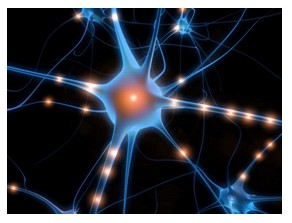
The Best Brain Diets include the following:
Lots of pure water –The brain is 80% water
Fewer calories – reduce toxins and avoid Alzheimer’s
Lean Protein – helps build brain neurons
Complex, low glycemic carbohydrates – includes whole grains, etc
Healthy fats – such as fish and avocados, and Omega 3 oils
Lots of dietary antioxidants such as blueberries – reduce brain inflammations, reducing risk of Alzheimer’s.
PROBLEM: High Blood Pressure
Hypertension is a major risk factor for strokes, heart problems, and vascular dementia.
 Chronically elevated pressure on the blood vessel walls, stiffen and narrow the blood vessels, much as in atherosclerosis.
Chronically elevated pressure on the blood vessel walls, stiffen and narrow the blood vessels, much as in atherosclerosis.
High Blood Pressure increases the risk of dementia by damaging the brain and causing memory problems, as well as being a major factor in Alzheimer’s disease.
SOLUTION: Maintain Normal Ranges of Blood Pressure
Hypertension, Coronary Artery Disease, and High Cholesterol all go hand in hand in causing brain problems, and all may lead to Alzheimer’s.
Memory Care of Arizona carefully addresses these concerns, of the connections between heart diseases and those of the brain, namely Memory Losses, Dementias, and Alzheimer’s. The connections and relationships are very similar, along with the results of problems within the brain. Therefore, study the areas of Clogged Arteries in the next section, and in the Web site menu area of Nutraceuticals for advanced information leading to improved brain function.
PROBLEM: Cardiovascular Problems of Clogged Arteries and Veins
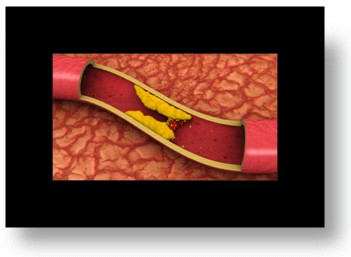 The carotid artery which goes directly to the brain may have plaque buildup, blocking the flow of blood, oxygen, glucose, and brain nutrients that go to the brain, thus causing dementia and Alzheimer’s.
The carotid artery which goes directly to the brain may have plaque buildup, blocking the flow of blood, oxygen, glucose, and brain nutrients that go to the brain, thus causing dementia and Alzheimer’s.
Alzheimer’s conditions cause memory loss, fear, confusion, and cognitive disorientation.
Atherosclerosis is the primary cause of Coronary Artery Disease, and greatly increases the risk of Alzheimer’s disease.
SOLUTION: Improve Blood Flow in Arteries and Veins Going to the Brain
Pay attention to how you exercise, for this is important. Regular physical exercise improves the tone of the blood vessels, decreasing the risk of heart disease, stroke, and high blood pressure.
It was the Honolulu Study of Aging which found that high blood pressure increased the risk of dementia, which is often mistaken due to problems with speech and memory, for Alzheimer’s. To avoid this, exercise and improve your blood vessels, and reduce the risk of dementia and appearing to have Alzheimer’s and relevant memory problems.
Take advantage of the scientific knowledge of Dr. Lewis Ignarro, who was  awarded the Nobel Prize in Medicine in 1998 for his work with Nitric Oxide for improving circulation and decreasing heart disease and strokes. Dr. Ignarro wrote the book “No More Heart Disease: How Nitric Oxide can Prevent – Even Reverse – Heart Disease and Stroke”. The work of Dr. Ignarro showed that the molecule of Nitric Oxide clears the arteries of plaque buildup. Researchers have taken this a step further by adding L-Arginine and L-Citrulline in a formula that research shows cleans the arteries 24 hours a day, clearing out the buildup in the arteries within in a few short months. Check out this work here on our web site.
awarded the Nobel Prize in Medicine in 1998 for his work with Nitric Oxide for improving circulation and decreasing heart disease and strokes. Dr. Ignarro wrote the book “No More Heart Disease: How Nitric Oxide can Prevent – Even Reverse – Heart Disease and Stroke”. The work of Dr. Ignarro showed that the molecule of Nitric Oxide clears the arteries of plaque buildup. Researchers have taken this a step further by adding L-Arginine and L-Citrulline in a formula that research shows cleans the arteries 24 hours a day, clearing out the buildup in the arteries within in a few short months. Check out this work here on our web site.
This topic, regarding the ability of the arteries and veins to deliver blood rich in glucose, oxygen and brain nutrients, is a most important one. We view this as such as important topic, that we have devoted a whole section in our MENU to this, under NutraCeuticals, and then under Brain Blood Flow. This section, is very informative regarding the importance of improving the circulation of the blood to the brain, and gives information on how to reduce the clogged arteries and veins and improve the blood flow going to the brain.
PROBLEM: Low Amounts & Inappropriate Physical Exercise
Without physical exercise, the brain struggles, losing neurons and memory.
SOLUTION: Physical Exercise
Physical Exercise improves the blood vessels going to and from the brain, decreasing possible strokes and heart disease, and in improving the flow of blood going to the brain.
Exercise increases brain-derived Neurotrophic Factor,  a chemical that helps with brain neurogenesis, of the brain’s ability to stimulate the growth of new neurons, which replace dying neurons and improves the ratio of new neurons to those that are lost, keeping a normal working balance of neurons within the brain.
a chemical that helps with brain neurogenesis, of the brain’s ability to stimulate the growth of new neurons, which replace dying neurons and improves the ratio of new neurons to those that are lost, keeping a normal working balance of neurons within the brain.
Without exercise stimulating the growth of new neurons, the brain would lose more neurons than it makes, thus causing severe neurological problems, and of course, a loss of memory.
People with Alzheimer’s have higher amounts of cortisol than normal aging people.
Cortisol causes memory loss. Research shows that exercise helps to reduce the amount of cortisol in high stress conditions in the short term memory structures of the temporal lobes of the hippocampus and entorhinal cortex. Therefore, exercise increases memory by reducing high cortisol.
Exercise increases the flow of blood to the deep inner areas of the brain. If the person does not receive the needed flow of blood into these inner reaches of the brain with delivery of oxygenation and glucose delivery, the person will have coordination problems with his/her limbs and will have trouble processing complex thoughts. Thus, it can be seen, the importance of exercising is to force the blood into the deep inner areas of the brain and keep them functioning.
Dr Amen emphasizes that, “The best exercises combine aerobic elements, which means you get your heart rate up, with some form of coordination movement. Coordination movement activates the cerebellum, at the back bottom part of the brain, and enhances thinking, cognitive flexibility, and processing speed.”
 Dancing is a perfect exercise, as it combines cardio with coordination, especially when learning new steps.
Dancing is a perfect exercise, as it combines cardio with coordination, especially when learning new steps.
Dr. Daniel Amen states that, “A regular habit of physical exercise is a major preventive strategy for Alzheimer’s disease and related disorders.”
PROBLEM: Mini- Strokes and Strokes
Vascular Dementia is the result of many negative conditions, including that of single large strokes (large hemorrhage in the brain) that are easily recognizable, or from a series of small mini-strokes (hemorrhages) that go unrecognized for many years, that may cause many difficult memory and cognitive problems.
The causes are:
Blood vessels fail to deliver blood containing oxygen and glucose to brain cells.
Within minutes brain cells are damaged.
Brain cells die if blood flow is not restored immediately.
The causes of the conditions that lead to the strokes, large and small are:
1. Hypertension, poorly controlled
2. Diabetes, blood vessels are brittle and break easily
3. Atherosclerosis, a hardening of the arteries
4. Heart Disease that reduces blood flow to the brain
5. Smoking, constricts blood vessels
6. Excessive Caffeine, constricts blood vessels
7. Heavy Alcohol use
And many additional reasons
EARLY SYMPTOMS
1. Impaired Task Performance
a. Problems with paying attention
b. Apathy
c. Problems with judgment
d. Mentally slowing down, as with memory problems
e. Difficulty is shifting from one task to another
f. Not being able to perform a task as well as before
g. Difficulty with using words and expressing one’s self
2. Walking Problems, may be slow or clumsy
3. Clumsiness, uncoordinated movements in doing many things
SOLUTION:
First, begin to control the underlying factors that originally caused the heart/brain circulation conditions.
One of the most beneficial applications, of major importance, is the acquisition of brain scans, such as the EEG Brain Mapping and SPECT scans, which are able to pinpoint the exact locations within the brain where the problems are occurring.
With this knowledge, the next step is in using Neurofeedback Therapy to help correct the problem areas is most important.
Along with this is the use of Specific Nutraceuticals for brain therapy, which can be very beneficial as a way to correct the underlying problem.
Conditions may often be reversed back to a more comfortable Quality of Life.
PROBLEM: Brain Injuries
 From falling off a bike as a child, or taking a tumble from a playground swing, to getting hit and having concussions when playing sports, such as football and succor, all of these can take their toll when it comes to having brain injuries.
From falling off a bike as a child, or taking a tumble from a playground swing, to getting hit and having concussions when playing sports, such as football and succor, all of these can take their toll when it comes to having brain injuries.
Whether large or small, such as being in a car accident, or falling and hitting your head as you fall, brain injuries may cause significant life changes with regard to physical behavior, and with mental and emotional conditions, on the operations of the brain, including being confused, having a loss of memory, an inability to concentrate, a lack of focus, problems recalling and speaking words, all of these may be the result of having a brain injury.
Early Symptoms
Early symptoms with cognitive impairments include:
Areas affected by the Impact and the Contracoup Event
The effect of hitting the head at impact, and also the effect of the impact inside the skull may be that the brain is bouncing of the sides of the hard inside skull, such as it may be difficulty in concentrating.
Symptoms due to Diffuse Axonal Injury
There may be slowing of mental abilities such as trouble in remembering some one’s name.
Symptoms due to Damaging Brain Areas that rest on the Base of the Skull
There may be a state of clumsiness, and in being able to recognize faces and objects.
SOLUTION:
The use of computerized scans, such as EEG Brain Mapping and SPECT scans, can pinpoint the areas of the injury, and this information benefits the therapist in planning therapy, primarily with using Neurofeedback Therapy to correct the electrical brain waves and improve the connections.
Nutraceuticals and Medications are also added into the therapeutic treatment mix for stabilizing the activities of the brain, decreasing symptoms, and improving cognitive performance.
PROBLEM: Dementia
Dr. Amen states that, “Dementia is defined as a progressive condition with two or more impairments in mental skills that interfere with a person’s ability to function in his usual manner in his social, family, personal, or professional life.”
There are many kinds of dementias that may be caused by any number of diseases,  resulting in language, memory, and cognitive deficits.
resulting in language, memory, and cognitive deficits.
While treatments are usually effective, it may not seem so, because diagnosis and treatments are usually started at the End Stage of The Disease, when a person may need more personalized care, even to the extent of going into an Assisted Living facility for more care.
The key to success is to recognize the problem and start treatment early, and as in other diseases, such as diabetes, if detected and treated early on, the person may be able to lead a regular healthy lifestyle. Again, the key is early diagnosis and early treatment.
Frontal-Temporal Lobe Dementia
This is a series of various diseases occurring within the frontal lobes and in the temporal lobes, as well the disease usually affect the deep inner reaches of the brain. There is progressive deterioration over several years time, with little hope for recovery. However, there are some medications that may slow the deterioration, and also postpone some of the neurological problems of the various dementias.
Alcohol Related Dementia
Alcohol is the most common toxin that causes dementia. Alcohol affects the brain by:
A. Blocking the entry of calcium into cells to inhibit neurotransmitter release and reduce the neuron’s electrical activity.
B. Blocking the transport of oxygen into the cell’s energy-production centers.
C. Reducing the effectiveness of many different types of neurotransmitters, especially those involved in learning and remembering.
Alcohol makes the brain unresponsive to it’s neurotransmitters, causing something like a generalized power failure. As cognitive problems and dementia sets in, the person does not even realize that they are having problems and they should reduce the alcohol. Denial is common, as they do not even realize that they have memory problems and dementia.
MRI scans show tissue loss, and SPECT scans show reduced brain activity in the frontal (executive planning) lobes, and in the temporal lobes and in the cerebellum. If drinking is stopped, and nutrition is given to the brain, it takes about 6 months to a year to show improvement in the EEG Brain Maps and SPECT scans,
Vascular Dementia
This is insufficient blood flow to the brain, causing memory and cognitive problems. The cause may be a number of various diseases, with the most common being high blood pressure (hypertension), diabetes, heart diseases, strokes, smoking, alcohol, and physical inactivity.
The problems occur as:
The pipe-like vessels become narrow, rigid or clogged, and
The heart doesn’t pump forcefully enough,
The blood thickens or clots too easily.
The risk factors tend to run in families, and may develop from a single large stroke to literally thousands of smaller strokes that are not very apparent, but the results accumulate into problems that are easy to notice, giving a loss of memory, an inability to recall words, confusion, going into fear and hostility.
Early symptoms show up as impaired task performance and judgment, mentally slowing down, difficulty in moving from one task to another, and an inability to do tasks at the same level of abilities as before.
SOLUTION:
There are a number of various solutions that improve the vascular conditions of the brain, and improve the circulatory system, thus improving the conditions of the brain itself.
One of the main treatments is that of reducing the clogged arteries. A large section of information is addressed in this web site. Look under the topic in the menu bar of NutraCeuticals for this advanced information on the heart and circulation system.
Another example of therapy is that of exercise, as seen below.
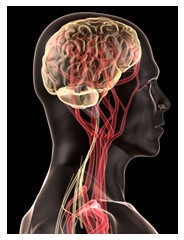 Exercise improves the strength of the heart muscle so that the deep areas of the brain receive better blood flow. It is these deep areas of the brain that are the most susceptible to reduced blood flow and cellular damage as we age. The well-designed Canadian Study of Health and Aging, which followed 4,615 cognitively normal Canadian over 65 years old for five years, found that regular physical exercise reduced dementia risk by 50 percent.
Exercise improves the strength of the heart muscle so that the deep areas of the brain receive better blood flow. It is these deep areas of the brain that are the most susceptible to reduced blood flow and cellular damage as we age. The well-designed Canadian Study of Health and Aging, which followed 4,615 cognitively normal Canadian over 65 years old for five years, found that regular physical exercise reduced dementia risk by 50 percent.
This web site provides bountiful information on this topic, as an important method of improvement for reconditioning the brain and improving memory and the cognitive areas of life.
PROBLEM: Alzheimer’s
Basically, Alzheimer’s is caused by two primary factors. The first is the accumulation of beta amyloid plaques in the brain, and the second is the formation of neurofibrillary tangles inside the neurons.
This is a degenerative disease that begins to show when the loss of dying brain cells exceeds the numbers of new replacement incoming brain cells, and memory loss occurs.
It is thought that Alzheimer’s evolves in a five stage process of:
Stage 1 – Lasts for 10 to 50 years, beginning signs are in the entorhinal cortex in the temporal lobes. But as of yet, no signs of short term memory loss.
Stage 2 – Lasts from 2 to 4 years, More than 1/3 of entorhinal cortex is damaged and problems have moved to the hippocampus area with short term memory loss and mild cognitive impairments.
Stage 3 – Lasts 2 to 8 years, and disease has spread to other areas of the brain, in temporal and parietal lobes, with mild dementia with such things as retrieving the right words, recognizing some one’s face, and understanding conversations.
Stage 4 – Lasts 2 to 6 years, as it continues to spread through more brain areas and into the frontal lobes. Symptoms of misunderstanding life’s experiences, with paranoid delusion, such as things ranging from fearfulness to terror, anger to social withdrawal.
Stage 5 – Lasts from 2 to 4 years, with disease widespread in the brain, going into the motor cortex, where movement and related occurrences happen, such as falling, choking, and bladder problems.
Prevention Through Delay
Today’s imaging methods can detect each of the stages of Alzheimer’s, helping with early detection, a correct diagnosis, and effective treatments. These tests can determine which stage a person might be in, such as in a stage 2, even before short term memory loss actually is experienced by the person.
When this is diagnosed, treatment (with such things as antioxidants to reduce inflammation in the brain and reduce the loss of cells) can begin right away, with the expectation that the problem can be improved by treatment during the early stages. This then becomes Prevention Through Delay of living life without suffering the symptoms of the disease.
When the daily repair to the cells of the brain and body can no longer keep up with the daily damage, our functioning begins to decline.
When damage exceeds the brain’s ability to repair itself, the first symptoms appear. This happens when the brain loses neurons faster than they are being replaced. When the production of new neurons in a brain region does not keep up with the number of neurons that are dying or being removed, then the functioning of that brain region begins to decline. In the case of Alzheimer’s disease, short term memory begins to fail when the number of neurons in the entorhinal cortex is reduced by about one-third.
SOLUTION:
Dr. Amen provides the following information as important aspects of consideration. From his book Preventing Alzheimer’s, (reference at end of article).
“In the case of Alzheimer’s disease, there are now objective data to show that:
1. Certain antioxidants, including vitamin E, ginkgo biloba, and possibly alpha lipoic acid, have significant disease-delaying effects.
2. Agents that prevent overstimulation by the neurotransmitter glutamate have significant benefits in delaying the disease.
3. Exelon, Reminyl, and Aricept – agents that enhance the neurotransmitter acetylcholine, a key brain substance involved with memory – help delay Alzheimer’s for six months to three or more years. The earlier treatment starts, the more the disease progression is delayed.
4. Nine out of ten population – based studies have shown that low doses (e.g., 200 to 400 mg of ibuprofen) of nonsteroidal anti-inflammatory agents take for two or more years in persons under 80 years old reduce the chance of developing Alzheimer’s by about 50 percent.
5. To date, the only nonsteroidal agents that block the production of beta amyloid – a key component of Alzheimer’s pathology – are ibuprofen (Motrin, Advil), sulindac, and indomethacin (Indocin).
6. Most studies of aspirin and Alzheimer’s risk show that low-dose aspirin (175 mg or less) reduces the chance of developing Alzheimer’s by 33 to 50 percent.
7. Structured activity programs delays disease progression and institutionalization.
Dr. Amen further states that, “One of the fundamental problems of prevention is in knowing what combination of treatments is right for each individual.” Memory Care of Arizona uses the methods of advanced technology of EEG Brain Mapping and SPECT scanning to see the operational conditions of the brain, and uses this vital information to tailor prevention strategies to each individual’s personal needs.
A Summary
As can be seen from the above information, there are many medical and neurological conditions that may cause a loss of memory, with the related problems of fear, anger, confusion, and many other cognitive malfunctioning problems.
The important point is that Alzheimer’s is but one of many possibilities that cause a loss of memory. This is very good, because it means that there are a great many conditions relating to a loss of memory that are NOT Alzheimer’s related.
In true logic, if ALL memory problems are NOT those from Alzheimer’s, this is good. Then, not having Alzheimer’s is VERY GOOD, for there is hope for recovery for most of the medical and neurological conditions that relate to memory and cognitive malfunctioning.
Memory Care of Arizona uses computerized scanning of EEG Brain Mapping and the SPECT scans to determine the cause of the loss of memory for each individual. From this vital information, a treatment program is specifically planned to meet each individual’s neurological needs, such as nutritional formulas and Neurofeedback Therapies.
Therefore, there is GREAT HOPE for a Happier Future and an Improved QUALITY of LIFE.
The above information was taken primarily from the works of Dr. Daniel G. Amen. See references below.
For further in-depth knowledge, the books written by Dr. Amen are quite outstanding for those who are seeking knowledge on memory and related neurological concerns.
Preventing Alzheimer’s: Ways to Help Prevent, Delay, Detect, and Even Halt Alzheimer’s Disease and Other Forms of Memory Loss
Authors: William Rodman Shankle, M.S., M.D. and Daniel G. Amen, M.D.
A Magnificent Mind at Any Age: Natural Ways to Unleash Your Brain’s Maximum Potential
Author: Daniel G. Amen, M.D.
Change Your Brain, Change Your Body: Use Your Brain to Get and Keep the Body You Have Always Wanted



